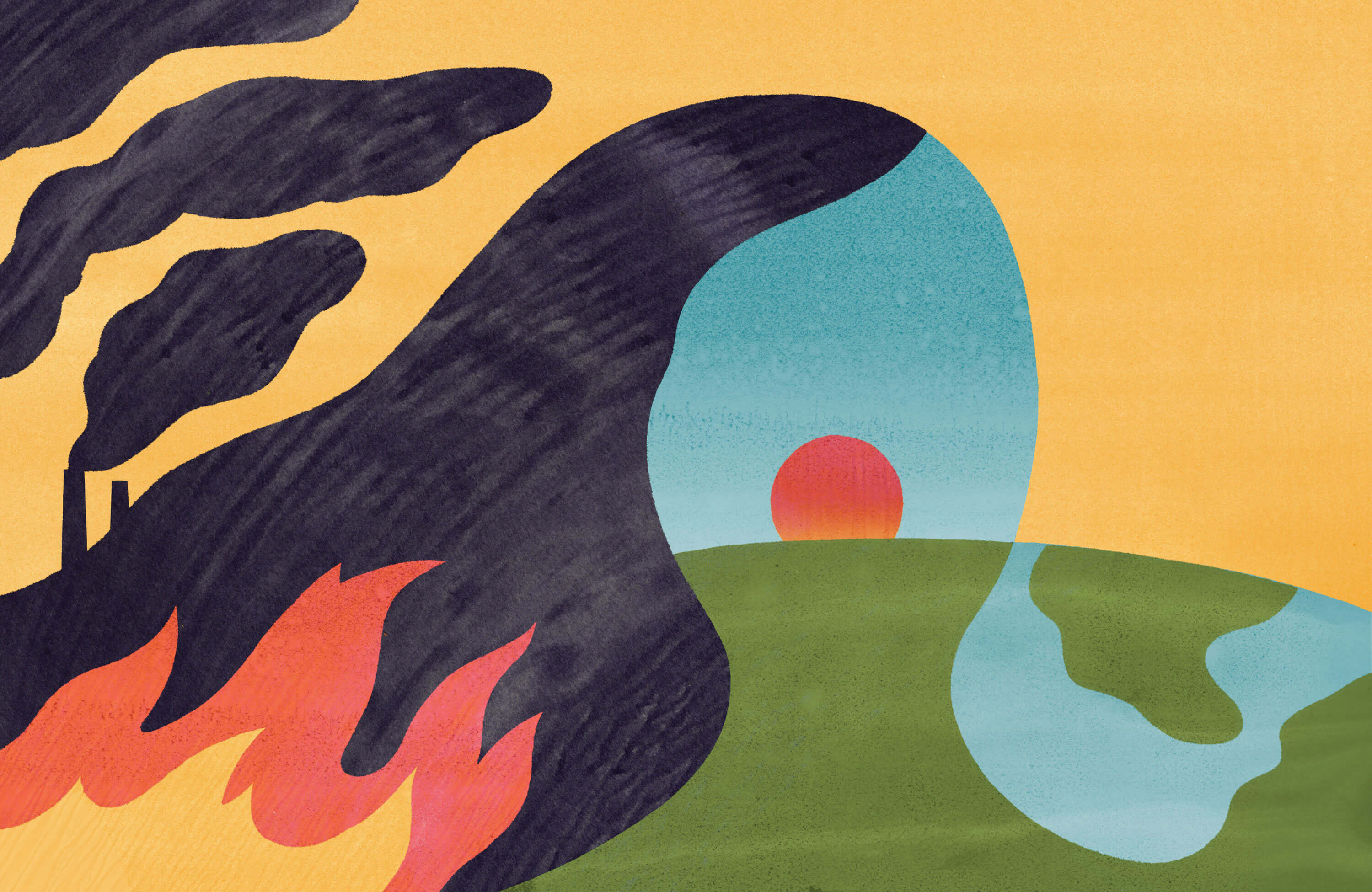
Our Love Affair With Capitalism Is Killing The Planet
A sociologist’s perspective.
To Nancy Mezey, the root cause of climate change is abundantly clear: global capitalism’s demand for production and consumption.
“We love to love capitalism,” says Mezey, a professor of sociology and dean of the Honors School. “The bottom line for capitalism is to increase the profitability of corporations … and the very growth that corporations rely on causes the degradation of this Earth.”
In today’s post-industrial consumer economy, a corporation’s major focus is to produce as much as possible in hopes that consumers buy as much as possible, says Mezey. And thanks to advances in technology and companies like Amazon, consuming has never been easier.
“You could have purchased a car or purchased all of your groceries in just the five minutes you’ve been reading this,” says Mezey. “We make it so easy to consume, and not only do we make it so easy to consume, but we love to consume.”
Why? Because the act of consuming makes us feel good, says Mezey. But the never-ending cycle of overconsumption and overproduction comes with a hefty price tag: an ever-growing carbon footprint. Transportation is currently the largest contributor of anthropogenic (human-caused) greenhouse gas emissions in the United States, with energy use listed as a close second; both are due to the burning of fossil fuels. The agricultural sector is another major offender, with farms contributing 9% of greenhouse gas emissions in the United States.
What makes these figures worse, says Mezey, is that we continue to exasperate existing problems across sectors because of our obsession with consumption. We cut trees that absorb carbon to either build roads with heat-absorbing black asphalt (so Amazon can deliver our products) or to clear space for cultivating crops and livestock for food. Raising animals in and of itself requires enormous amounts of water, crops, and land, and as Mezey points out, livestock and food waste contribute large amounts of methane, which is 85 times more potent than carbon dioxide, and nitrous oxide, which is almost 300 times more potent than carbon dioxide, throughout the duration of their life.

“Not only are we using a lot of land and natural resources, but we also create a lot of waste because everything that we consume comes with throwaway products—it comes with a straw, it comes with a single-use bag, it comes with plastic and Styrofoam,” says Mezey. “We supersize everything and can’t possibly eat it all … so, we throw it out, and just by throwing out our food, it creates an enormous carbon footprint.”
But there is hope, says Mezey. Individuals, companies, and even some communities are slowly making efforts to change. New York City, for example, is attempting to adopt a circular economy, a widescale effort that aims to have no additional energy and production going into the economy, as well as no more waste going out.
But while that’s a step in the right direction, Mezey points out that the biggest change that needs to happen is a cultural one. Individuals must recognize the problems that exist with regard to Americans’ overconsumption in order to affect change across the larger political and economic systems.
“Scientists tell us climate change is happening. We know that we have the technology to reduce our carbon footprint. We just have to convince people,” says Mezey. “To ignore people’s hearts and minds is really a dangerous thing, and I think that’s really where we’re at right now. We can’t ignore people’s hearts and minds, so we have to convince people that climate change is real.”
Next, read Part II of this series: The Art of Sowing Doubt.